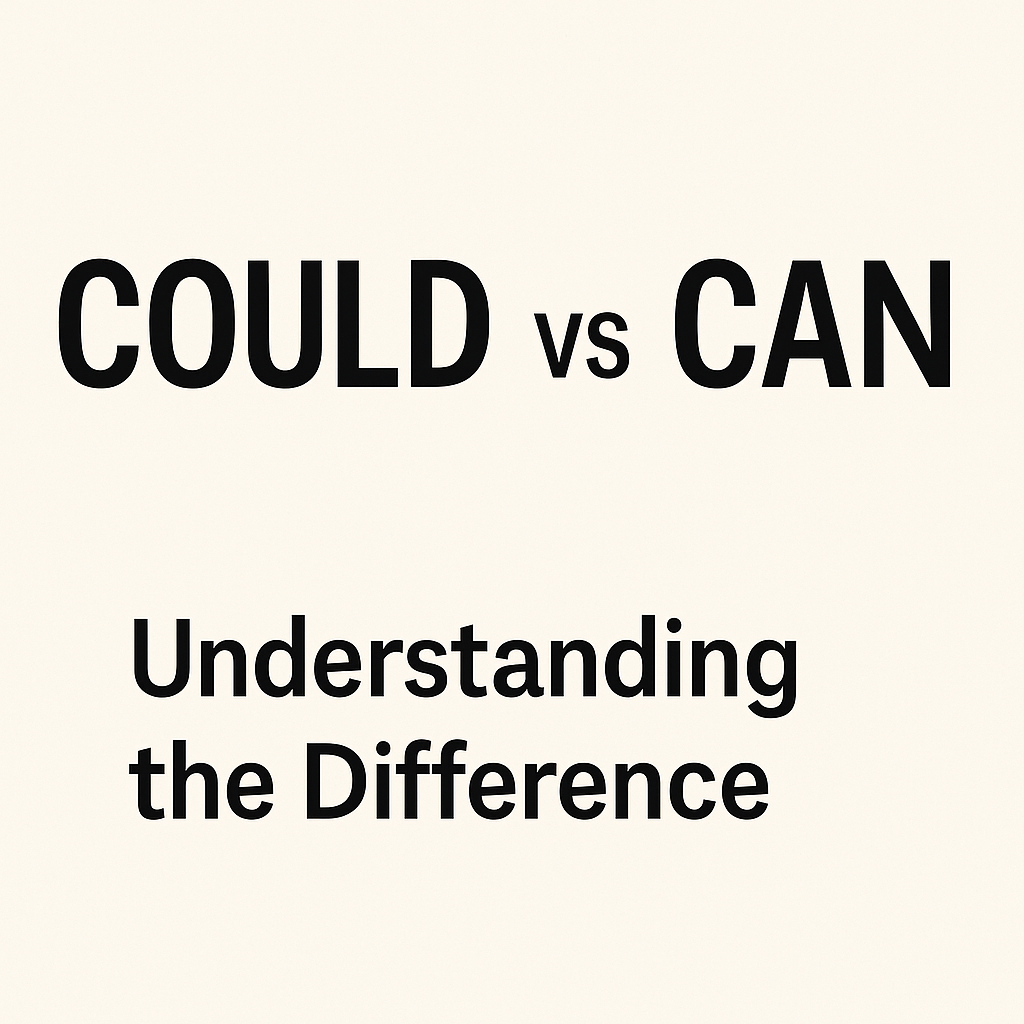Could vs Can

English learners often stumble over the correct use of “could vs can,” two modal verbs that seem similar but have different applications. Both words express ability, possibility, or permission, yet they vary in terms of tense, politeness, and certainty.
“Can” is typically used to indicate present ability or possibility, while “could” is the past tense of “can” and is also used to express polite requests or hypothetical situations. Misusing these words can lead to unclear or grammatically incorrect sentences.
Understanding the precise difference between “could vs can” helps improve both spoken and written communication, making your English more natural and professional. Let’s break it down.
Grammatical Explanation of Could vs Can
“Can” is a modal verb used to express present or general ability, possibility, or informal permission. For example:
- I can swim. (ability)
- It can get cold at night. (possibility)
- You can leave early today. (permission)
“Could” is the past tense of “can” when referring to ability in the past:
- I could swim when I was five.
Beyond past ability, “could” also functions in other ways:
- To express polite requests: Could you help me, please?
- To indicate possibility in hypothetical or uncertain situations: It could rain tomorrow.
- To suggest an option: You could try restarting your computer.
Note that “could” is generally more tentative or less certain than “can.” “Can” is more direct and confident, while “could” adds a tone of politeness or speculation.
Find more grammatical tips in our blog:
–
Real-Life Examples
“Can” – Correct Usage:
- She can play the guitar very well.
- Can I borrow your pen?
- He can lift 100 kg easily.
“Can” – Incorrect Usage:
- Can you helped me with this? (Should be: “Can you help me with this?”)
- I can speak Spanish when I was a kid. (Use “could” for past ability.)
“Could” – Correct Usage:
- When I was younger, I could climb trees easily.
- Could you send me the report by Friday?
- That noise could be a cat outside.
“Could” – Incorrect Usage:
- He could drives very fast. (Should be: “He could drive very fast.”)
- I could go to the party yesterday. (Should be: “I went to the party yesterday.” – avoid “could” with specific past actions.)
Examples help solidify understanding and clarify when to choose “can” or “could” based on context.
Common Mistakes in Could vs Can
One common mistake is using “can” instead of “could” when referring to past abilities. For example, saying “I can run fast in high school” is incorrect. The correct form is “I could run fast in high school.”
Another error is using “could” for certainty in the present, where “can” is more appropriate. For example, “I could swim” (without context) might confuse the listener, is it a present ability or past? Instead, say “I can swim” for present ability.
Also, when asking for permission or making polite requests, some use “can” where “could” would be more courteous, especially in formal settings. For instance, “Can you help me?” is fine in casual speech, but “Could you help me?” is more polite.
Understanding these nuances prevents confusion and enhances clarity in communication.
Memory Tips
Here are a few simple ways to remember the difference:
- “Can” = Current Ability
Think “Can = Current.” Use it for what someone is able to do now. - “Could” = Courtesy or the past
“Could” is softer and more polite. Remember, “Could you please…” is always nicer than “Can you…” - For past ability, imagine this:
Back then, I could, now I can. - Think of “could” like a gentler cousin of “can” more polite, less certain.
Use these mnemonics to make better choices when speaking or writing.
Conclusion
Although “can” and “could” are closely related, knowing when to use each makes a big difference in how your English sounds. “Can” is best for present abilities and direct requests, while “could” works for past abilities, polite requests, or uncertain possibilities. Review this page whenever you’re unsure, and check out other cluster pages to master more commonly confused word pairs! For more on how modal verbs like “can” and “could” function in English, visit this comprehensive guide by Cambridge Dictionary.